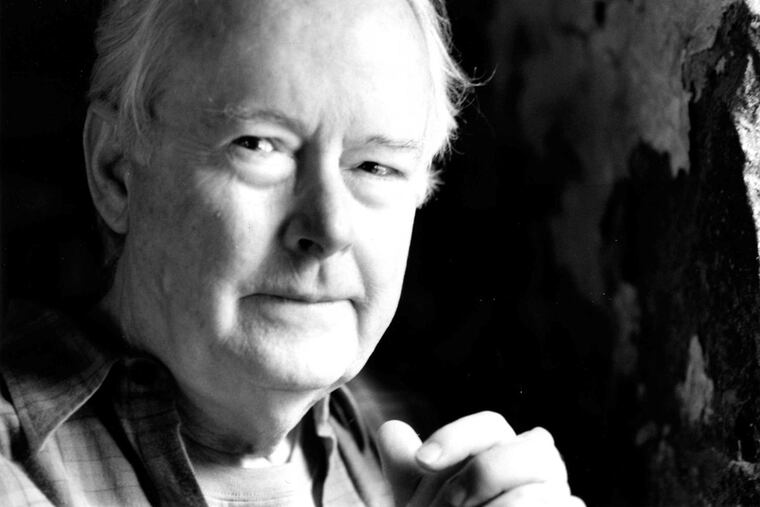William Mercer Hollis Jr., 84, poet and teacher
William Mercer Hollis Jr., 84, of Blue Bell, a poet, teacher, and philanthropist, died Friday, Nov. 13, of prostate cancer at the Hill at Whitemarsh.

William Mercer Hollis Jr., 84, of Blue Bell, a poet, teacher, and philanthropist, died Friday, Nov. 13, of prostate cancer at the Hill at Whitemarsh.
On his own and with his wife, Philadelphia Museum of Art trustee Andrea Baldeck, Mr. Hollis was for many decades an active participant in the cultural life of the city, said Timothy Rub, the museum's George D. Widener director and CEO.
Born in Lakeland, Fla., and reared in the South, Mr. Hollis spent time in New England teaching at Dartmouth College and raising a family before finding a permanent home in the Philadelphia suburbs.
He served as a trustee of the museum for 13 years starting in 1993, and put in three additional years as a trustee emeritus, Rub said.
During that time, Mr. Hollis was a member of the museum's East Asian Art Advisory Committee.
Gifts to the museum made through the Hollis Family Foundation and with his wife included endowments for acquisitions, research, educational programs, and curatorial positions.
"Bill's support was not only exceptionally generous but also timely," Rub said. "He encouraged others to give by example and clearly laid the groundwork for the growth of our East Asian Art Department."
The department now has three endowed curatorial positions and was able to acquire 100 works of art through his beneficence.
Among the acquisitions was a remarkable Japanese jar from the Jomon period and a Chinese Scholar's Rock. As curator Felice Fischer noted, Mr. Hollis "had a special place in his heart for calligraphy, which appealed to the poet in him."
One of the first acquisitions he supported was a calligraphy fan by the Chinese literatus Wen Zhengming, which inspired him in 2007 to produce a book of poems called Poem-Chanting Tower.
Poem-Chanting Tower was the name of the house that Xue Tao, courtesan and poet, built at her retirement in A.D. 810 on the banks of the Brocade River in China.
"The poems in this volume gathered words slowly over a quarter of a century, even as they looked back to Xue Tao's 9th century or to my years in Vermont, or to more recent years when I decided to encounter more vividly an ancient world, where I wake at night and find myself," he wrote.
Sickly as a child, Mr. Hollis learned to play the piano very early. During study at Washington and Lee University and Princeton University, he could not limit himself to one major. He went to Europe as a Fulbright scholar.
After several years in the Army, he married Valerie Ward and taught English at Dartmouth, and the humanities at Drexel University for 20 years. The couple had two daughters.
But he yearned for the artist's life.
He found that poetry had to be relegated to summer vacations, though the poems kept coming anyway, even after he grew tired of trying to fit into "the literary scene," a scene that never worked for him except when he was dramatically reading his poems in bars and bookshops of Philadelphia.
"And so another 20 years passed, and he was 50, retired from teaching he could no longer do with enthusiasm, unhappy with his life, divorced, trying to be a painter or a musician, which he admits he isn't; but still he wrote poems, volume after volume," he wrote in an autobiography.
He met and married Baldeck, a musician, physician, and photographer. They traveled to places where both could express and explore their artistic temperaments, he in words, she in pictures.
"He was a man of many lively interests who in many ways had a childlike delight in exploring for years on end," Baldeck said.
In addition to the museum, Mr. Hollis supported the Philadelphia Chamber Music Society, Morris Arboretum, and the Poetry Review.
Besides his wife, he is survived by daughters Catherine and Sarah Hollis, a sister, and his former wife.
Services and burial are to be private.
Donations may be made to the Philadelphia Museum of Art, via http://www.philamuseum.org/giving/donate.html.
610-313-8102